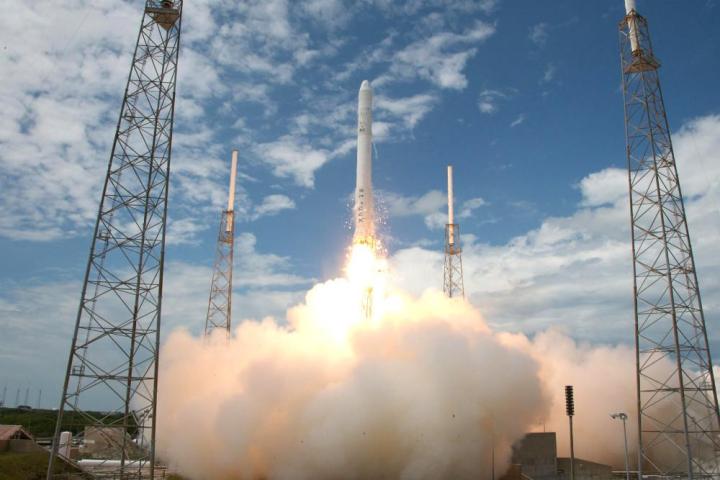
Its first attempt at a damage-free landing for its Falcon 9 rocket is expected to take place in December as part of the team’s next space launch. The ambitious plan is aimed at developing a safe and secure method for bringing the rocket back to Earth at the end of missions that involve sending its cargo-laden Dragon capsule to the International Space Station. If it succeeds in its plan to develop a reusable system for its rocket, the company’s space travel costs will be drastically reduced.
The platform, which measures 91 x 52 meters (300 x 170 ft), will float unanchored at an as-yet unspecified location in the Atlantic. Attached engines and GPS sensors will help to keep it in position.
SpaceX has already succeeded in bringing the Falcon 9 back to Earth, however, unstable landings have seen it destroyed each time.
February’s mission will be the company’s very first attempt at landing the rocket safely on a floating platform. But with the rocket as tall as a 14-story building, it’s clearly going to be an extremely delicate operation.
“When a 14-story building falls over, it’s quite a belly flop,” Musk said recently at the Massachusetts Institute of Technology’s AeroAstro Centennial Symposium. “We’ve been able to soft-land the rocket booster in the ocean twice so far. Unfortunately, it just sort of sat there for several seconds then tipped over and exploded.”
Despite all the planning, Musk puts the chances of succeeding with its first floating-platform landing at just 50 percent.
The SpaceX boss described the project as “tricky,” adding that they should be able to get it right during the 12 or so launches scheduled to take place over the next year.
“I think it’s probably quite likely – 80 percent or 90 percent likely – that one of those flights we’ll be able to land and refly. I think we’re quite close,” Musk said.
[Source: Space.com, Discovery]
Editors' Recommendations
- How SpaceX could transform Starlink into an ultraprecise GPS network
- Watch SpaceX practice an emergency escape from its Crew Dragon capsule
- How to watch the SpaceX Dragon spacecraft depart the ISS today
- Digital Trends Live: Workers may strike, HQ Trivia is back, SpaceX delivers
- SpaceX selected to deliver cargo to NASA’s Lunar Gateway space station

